Dragon Age Inquisition Xbox One
Just as Jesus of Nazareth was asked to answer to claims of his divinity, so too does Dragon Age: Inquisition ask you to respond to rumors of your own godhood. As the game opens, you tumble from a rift in the sky, from which onlookers also see a glimpse of a woman. Many believe that the woman must be Andraste, the prophet whose doctrine inspired the rise of the Chantry, yet you have no memory of the event. Perhaps you are a chosen one; perhaps you are merely fortunate. The Maker may know, but His voice continues to go unheard, at least directly; it is up to you, and those you influence, to decide whether you have been marked by a deity. And just as with real-life matters of faith, there is not always a clear resolution.
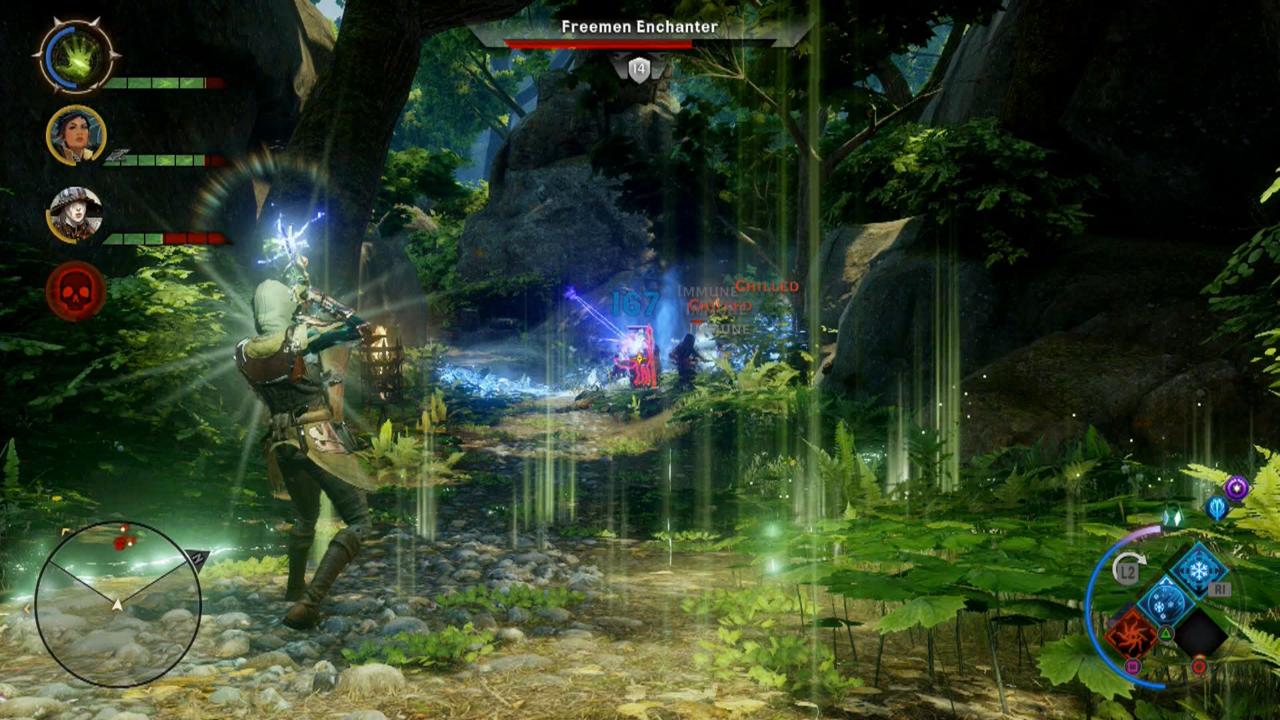
It is from tragedy and chaos that the Inquisition is reborn, and it is only appropriate that a fledgling movement appoint a fledgling leader--you--as its head. You tailor your Inquisitor in all sorts of wonderful ways using the game's intricate character creation system; you may even choose from a couple of different voices, even though the character is fully acted. You can also create a Qunari protagonist for the first time in the series, though you needn't mourn the options you didn't choose should you prefer a Dalish elf: your available party members, three of whom can join you at any given time, are a diverse group, and include Iron Bull, a no-nonsense, laid-back Qunari warrior who avoids becoming the gruff, gravelly-voiced stereotype he could so easily have been.

Of course, keeping these two in your party means leaving others behind, and it's hard not to miss Varric's hairy chest, which is almost a character unto itself. I grew to appreciate a mysterious spirit named Cole most of all, not just because of his talent with dual daggers, but for his overwhelming compassion for others. He reads minds, often communicating the thoughts and emotions he uncovers in a stream-of-consciousness poetry, fragmented and alliterative. Cole comforts people in need, but wipes memories of him from their minds, in a touching show of selflessness.
It is through dialogue choices and forking gameplay options that you become the Inquisitor you wish to be. You even sit upon your throne and cast judgment on those that wronged you--and then deal with the repercussions when certain people and factions don't like your choices. You might sentence a renegade mage to tranquility, only to face negativity from magical forces that fear your wrath--or, if you are a mage, see you as a hypocrite. Some of these choices play out on the war table, which you view along with your Inquisition allies from overhead. Here, you select missions that might reward you with influence and power, or earn you metals and herbs to use for crafting new armor and weapons, or for outfitting your base of operations with new decor. Once a mission is selected, you select an approach--usually diplomatic, surreptitious, or forceful--and then wait for word to come back and rewards to flow in. This is Dragon Age's answer to Assassin's Creed: Brotherhood: you assign tasks to your allies, and they return, hopefully, with news of good fortune.
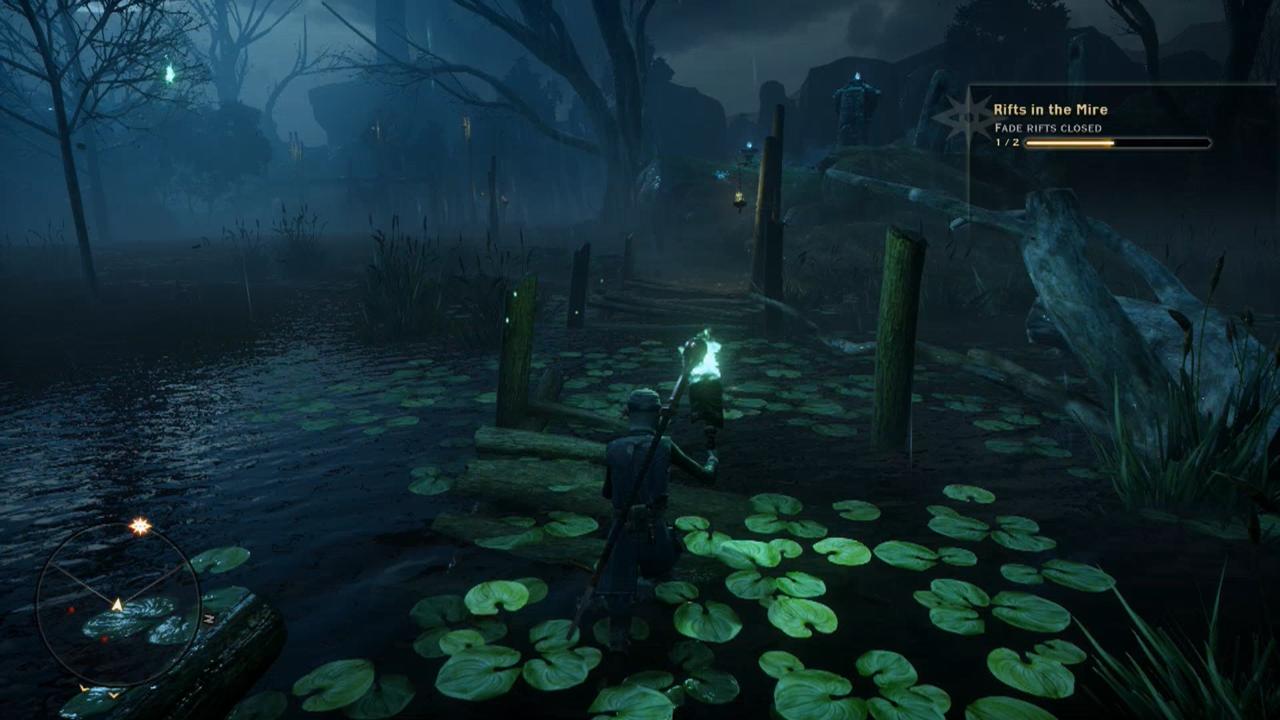
Your choices from previous games are reflected as well, though if you've decided to move to a new platform, you can visit the game's official website and tailor the world in advance. Some references to those choices are entirely too conspicuous, as if to scream "Hey, remember that thing you did? Do you?" Fortunately, not every contextual detour is so blatant. Your race and class are frequently noted in passing, and they are reflected in how people speak to you and react to your presence. As a Dalish elf, the idea that I could truly be The Herald of Andraste (the Christlike title I was granted) was blasphemy among many; as a mage, the Templars did not greet me with enthusiasm. At one stage, I was invited to hobnob with the Orlesian elite, a suspicious crowd that grew even more suspicious in my elven presence.
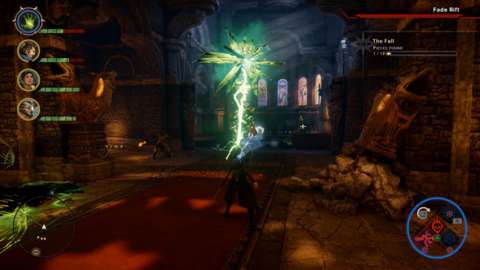
Combat is likely to be Dragon Age: Inquisition's most divisive feature. It is fun and colorful, and if you bemoaned the loss of the tactical camera in Dragon Age II, you'll be glad to know it is back, and available even on consoles, allowing you to direct the action from above. The tactical camera can be awkward, getting caught up on objects and sticking a bit too close to the action. On the other, the ability on consoles to use a single button to forward time instead of constantly pausing and unpausing is an intuitive tweak. But unless you're fighting roaring dragons or imposing bosses, you probably won't need the tactical camera very often, should you play on medium difficulty. Instead, you perform your standard attack, which costs no stamina, while throwing in more powerful abilities for dealing additional damage and controlling crowds.
Certain key boss battles aren't a comfortable fit; boss attack patterns sometimes require immediate reactions, but party members in the midst of combat don't respond until the current action is complete, at which point it might be too late to avoid damage. These occasions are the exception, however, and not the rule, and easy or not, there's no doubting the action's diversity. Because you can directly control the Inquisitor as well as any party member, there's never a need to stick with magic, or a two-handed blade, if you prefer to inhabit Varric's shoes and shoot his prized bow Bianca for a while.

Journeying is an absolute delight. You discover astralariums that hone in on constellations, requiring you to perform a connect-the-stars minigame to reveal the myth behind them. You peer through contraptions that allow you to survey the landscape and identify shimmering shards, which you then may collect. Such activities initially come across as busywork, only to be revealed as keys to new dungeons and temples. Meanwhile, your work at the war table often results in new areas being revealed, and previously accessible areas opening to you. And so you blindly venture into a new cavern, which might hold spiders, phantasms seeking respite, or puzzles that lead to even greater mysteries. There are decisions to make in the field, as well. I chose to betray my legacy and pursue untold magical knowledge, only to offer that knowledge to another when I feared the potential negative repercussions. There are paths I look back on with wonder and regret. What if I had gained the ancient ally I had forsaken? What if I had abandoned my selfish quest for wisdom and instead paid no mind to the power-hungry mage bending my ear
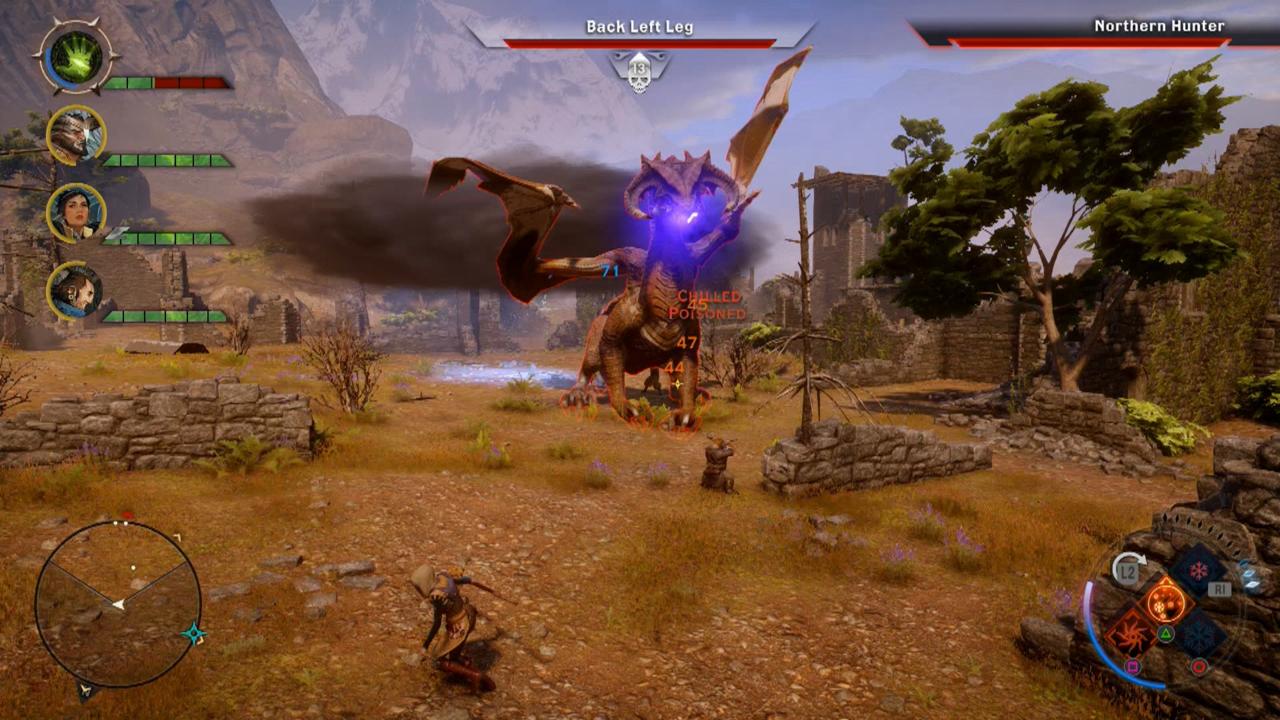
This enormous and attractive picture reveals blemishes should you look closely enough. Rare sound bugs, awkward jumping puzzles, characters that pop into view, awkward cutscene transitions, and weird clipping might briefly distract you, but their sum total amounts to little. 85 hours after I started Dragon Age: Inquisition, the story reached a conclusion, and yet I still stare at all the areas still dark on the map. You can customize the keep that serves as your base of operations, and I look at the list of related unlockables, most of which still remain inaccessible. I wonder about Vivienne, the haughty mage that joined my cause, yet whom I barely know. I look at the small list of potions I have unlocked, and get anxious, wanting to rush into the Hinterlands or the Storm Coast, hoping to find plans for more. I ponder these schools of combat I have been told of, and the quests that (I think) will add them to my party's repertoire upon completion. I long to see and do all that I missed, not because it's there--but because I am confident it's worth seeing and doing.

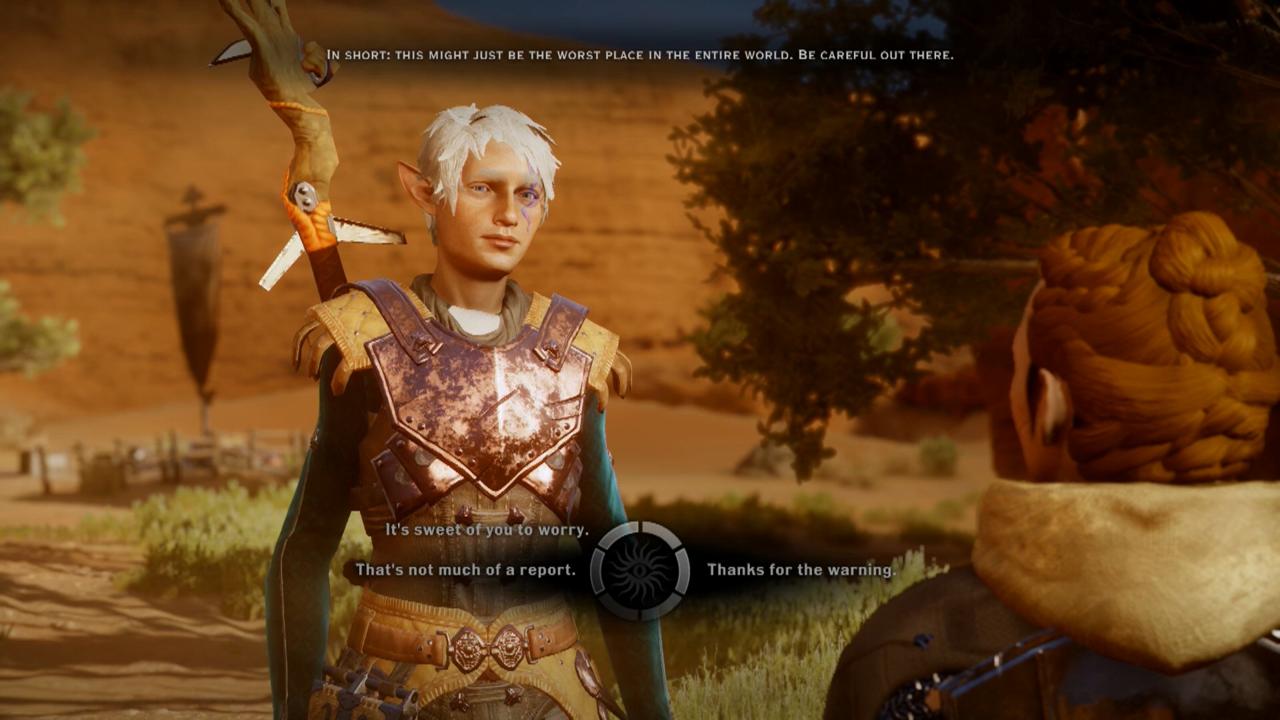
You might also spend a few hours in Dragon Age: Inquisition's cooperative multiplayer mode, which recalls that of Mass Effect 3, in that you have access only to a few different archetypes, and gradually earn more characters, more skills, and more items to boost you and your teammates in battle. (Of course, you can also purchase loot caches if you wish to hurry the process. It wouldn't be a modern big-budget game without a raft of microtransactions.) Matches are straightforward sojourns through three different maps focused exclusively on eliminating enemies, and while the enemies may differ, the pace is straightforward. Mass Effect 3 garnered a dedicated online following; Dragon Age: Inquisition's moment-to-moment gameplay doesn't have the same immediacy and spark, making it a fine bit of light entertainment, but unlikely to inspire the same devotion.
| Brand | Xbox |
|---|---|
| Warranty | Check at Delivery |
| Shipping | Same Day From Lahore |
















Log In